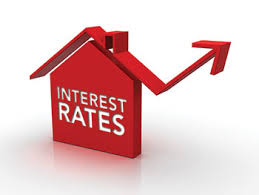Store credit cards have a higher Average Percentage Rate (APR) than standard credit cards. You might want to consider how much you’ll owe to the retail store with a 20% interest rate.

About Interest Rates:
An interest rate is the rate at which interest is paid by borrowers for the use of money that they borrow from lenders. Specifically, the interest rate is a percentage of principal paid a certain number of times per period for all periods during the total term of the loan or credit.
Interest rates are normally expressed as a percentage of the principal for a period of one year, sometimes they are expressed for different periods like for a month or a day. Different interest rates exist for the same or comparable time periods, depending on the default probability of the borrower, the residual term, the payback currency, and many more determinants of a loan or credit. For example, a company borrows capital from a bank to buy new assets for its business, and in return the lender receives rights on the new assets as collateral and interest at a predetermined interest rate for deferring the use of funds and instead lending it to the borrower. A commercial bank can usually borrow at much lower interest rates from the central bank than the rate at which companies can borrow from the commercial bank.
View ALL Store Credit Cards